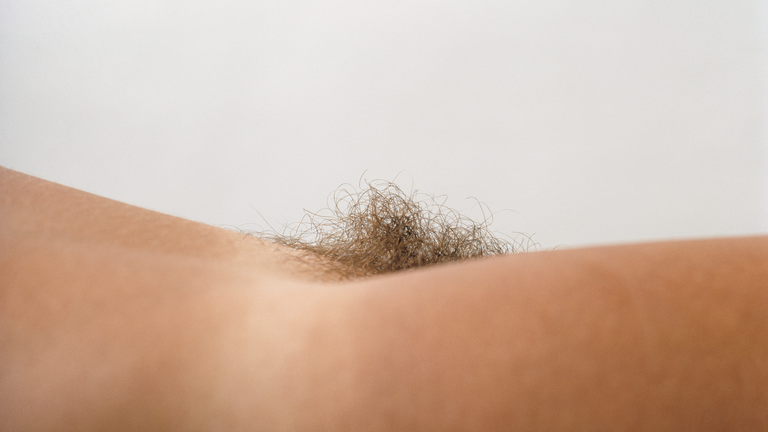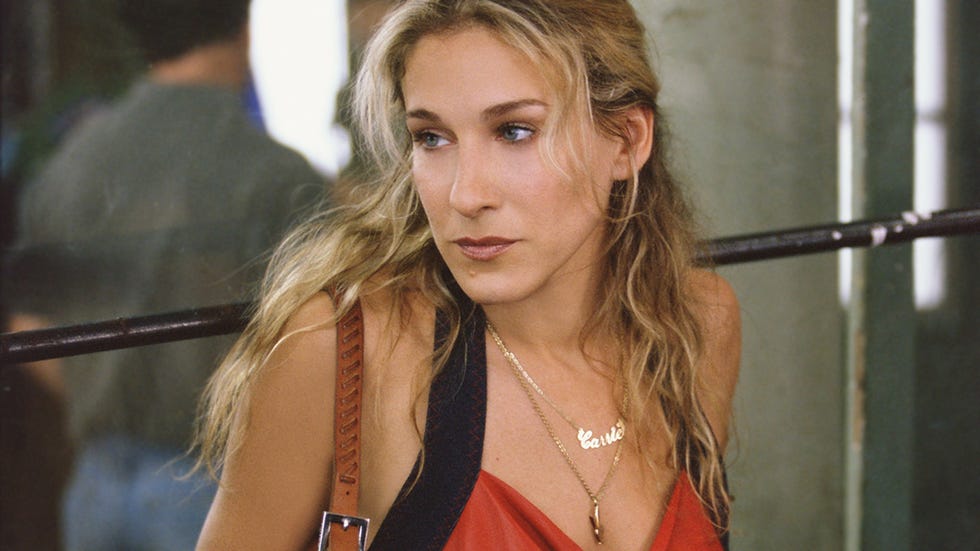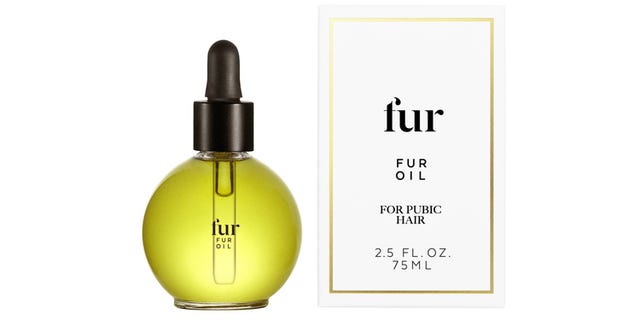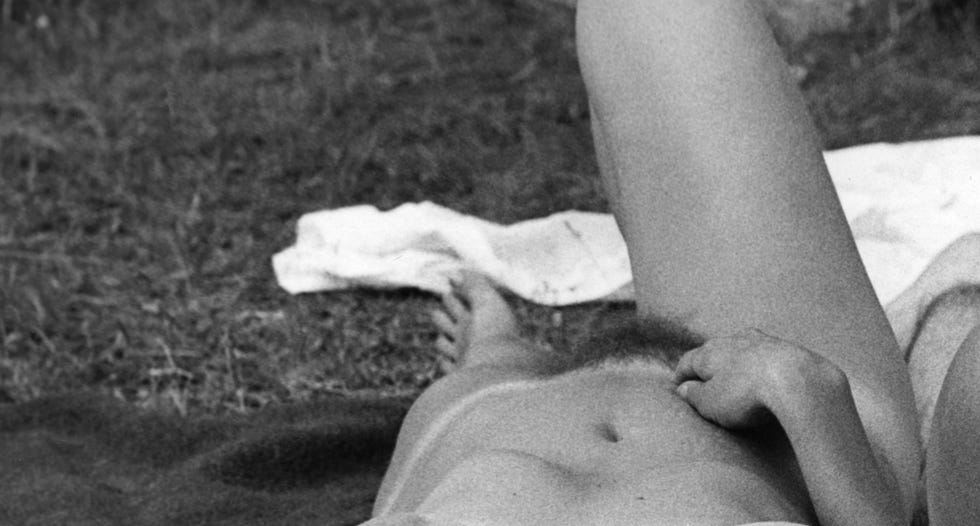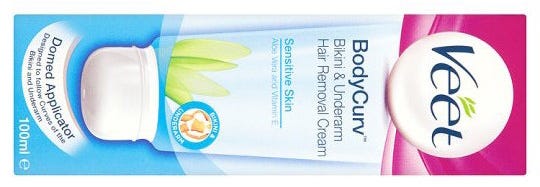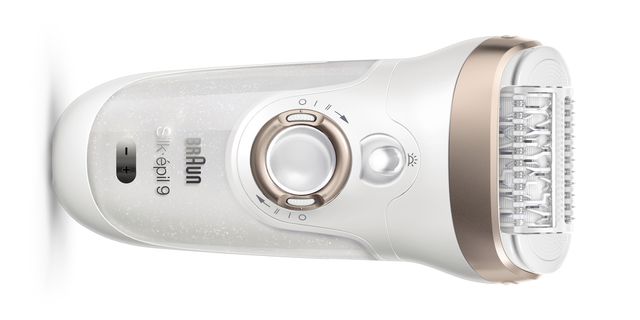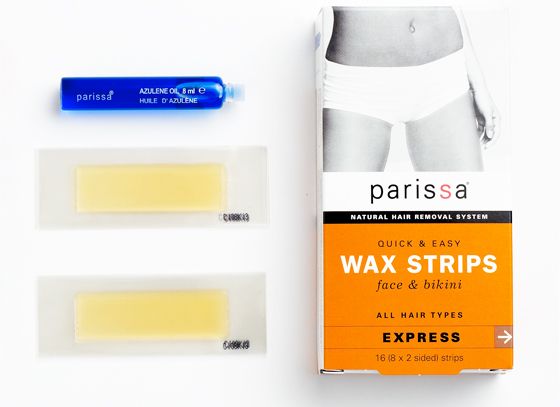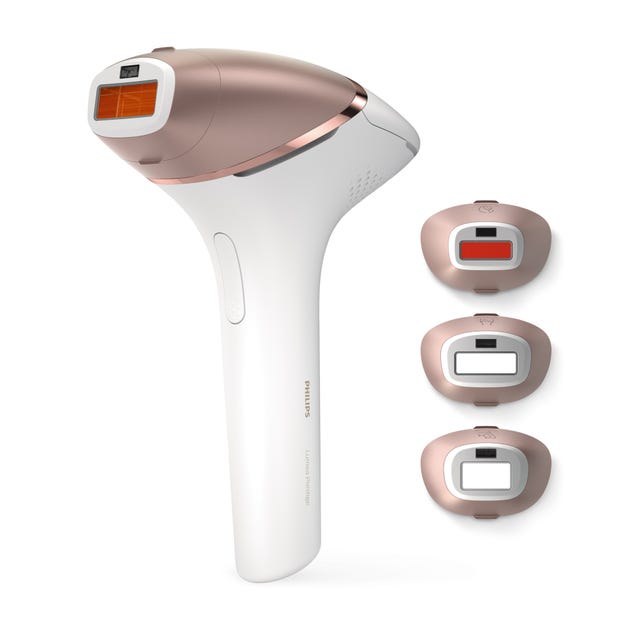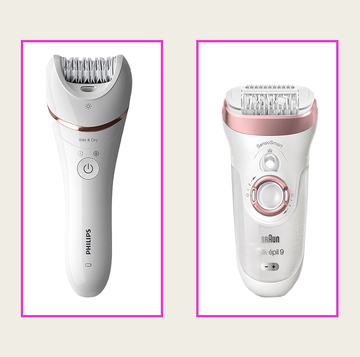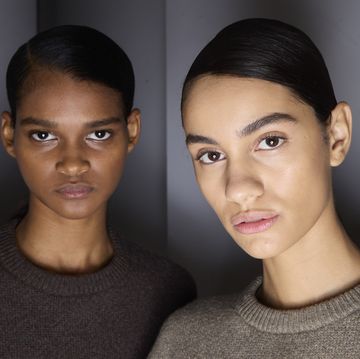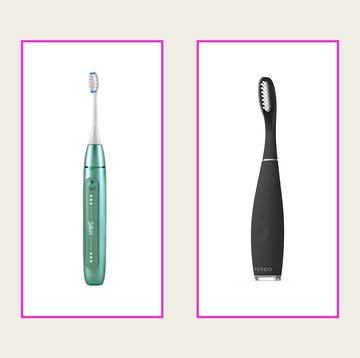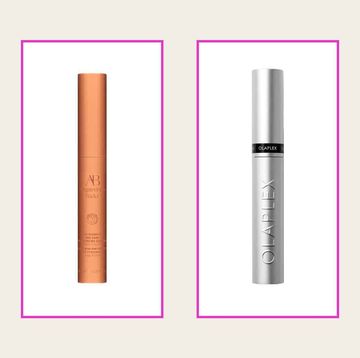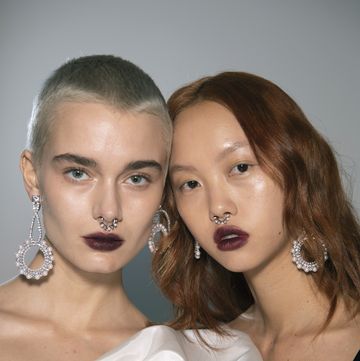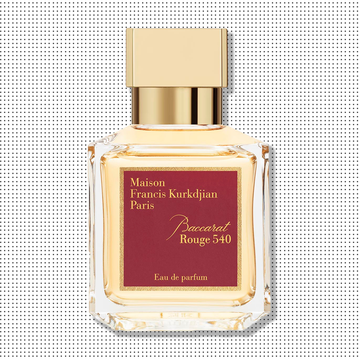Intellectually and politically, we might be all for a natural 'bush'. So why are we still waxing, shaving and plucking our pubic hair? Joely Walker investigates.
Lady gardens. For decades, we've been hellbent on pruning, plucking and zapping them into submission, in pursuit of pubic perfection. We've dabbled with landing strips, curated triangles and barber-precision trims, but over the past few years our agenda has been shifting, marking a movement away from a Barbie-smooth aesthetic to something altogether more natural.
The topic is definitely divisive: Mintel's British Lifestyles report showed that, in 2016, 83% of women aged 16-24 agreed there was too much pressure on them to remove or groom body hair, yet in that same year, a YouGov survey found almost 50% of women under 35 still opted to go completely hair-free. The figures don't add up, which begs the question: where do we actually stand when it comes to our pubic hair?
'In an age of activism, where people are rallying against injustices across the board, pubes have become a hot debate,' says Emma Grace Bailey, associate beauty editor at global trend-forecasting company WGSN. 'Who are we shaving it for? Why are we ashamed of something so natural? Where has this mindset that pubic hair is "dirty" come from?'
Biologically speaking, pubic hair is to provide cushioning against friction, protection from bacteria and to signify our readiness to mate. It's useful but, even so, hair removal dates back to Ancient Egyptian times, when women were said to depilate with bronze razors and sharp flints to prevent lice. Ancient Greeks saw pubic hair on women as 'uncouth' (hence the mostly smooth nature of many statues born of that era). Then came the merkin in 1450 – a pubic-hair wig – made for women who had shaved their hair to combat pubic lice and cover up signs of disease. We've come a long way on the hygiene front, but practicality has been at the heart of grooming for aeons.
In 1946, Parisian engineer Louis Réard created the bikini and, subsequently, the 'bikini line'. Pubes were put in a wider societal spotlight, although legs and underarms were still the focus for hair removal. The sexually liberated Sixties and Seventies took a carefree approach to, well, everything, and the bush went big, so it was in the Eighties and Nineties that saw lady-garden grooming – albeit covertly – become the order of the day once more.
But by far the most pivotal moment for pubes in the past century has to be in 1987, when seven Brazilian sisters set up a waxing salon in New York, where the full Brazilian wax (AKA complete pubic-hair removal) was born. We'd have to wait until 1998 for this method to enter the cultural zeitgeist by way of Sex and the City.
Carrie: 'I got mugged. She took everything I got.'
Samantha: 'It's called the Brazilian wax. '
Miranda: 'You didn't tell her to stop?'
Carrie: 'I tried. I feel like one of those freaking hairless dogs.'
And thus, the world was led down a slippery slope to smoothness, with Victoria Beckham announcing in 2003 that the Brazilian should be 'made compulsory [at] aged 15'.
Today, with a new wave of feminism firmly established, we're not afraid to embrace our natural state. We're told that 'the bush is back'. Indeed, it's being championed by A-list celebrities, be that Gwyneth Paltrow admitting to 'working a Seventies vibe' down there in an interview with Ellen DeGeneres, or Emma Watson talking openly about keeping her hair soft and supple with Fur Oil, a luxury pubic hair-care brand.
More recently, Amber Rose posted a pube-proud Instagram image captioned #BringBackTheBush, and Ashley Graham owned up to rocking a 'full bush. Period'. So if we are intellectually embracing the bush, why are we still booking in for laser hair removal the first opportunity we get?
Cynthia Chua, founder and CEO of London's Ministry of Waxing, tells us this is the case in terms of her salon chain's highest hitters. 'We have a high demand for Brazilian laser hair-removal and most of our clients are opting for a more permanent solution to keeping hair away,' she explains. 'There appears to be a shift in the culture towards maintenance – and with hair gone from down below, the focus is on keeping the skin supple and moisturised.' Enter the vagina facial – or vajacial – whereby a therapist attends to your pubic area as if it were your face, to leave you 'fresh and glowing' (and ingrown-hair-free).
For a more manageable maintenance approach, consider pubic-hair brand Fur. What started as a conversation between sisters Emily and Laura Schubert soon led to a product line that addressed the need for straight talking and targeted body-hair products, which they believed were missing from the market.
'As we talked, we realised the available products were not in line with the cultural movement – the ingredients were harsh, the packaging was unsophisticated, and they seemed to focus only on removal – [presenting] hair as a "problem",' explains third co-founder, Lillian Tung. Nurturing it, whether the hair is in abundance or otherwise, is where we should be setting our stalls. According to a study published by JAMA Dermatology in June 2016, more than 80% of women groom their pubic hair, in a variety of ways, but until recently it's not been discussed.
'Emma Watson has always been such an outspoken advocate for human rights and everyday feminism, and for her to open up [about her grooming habits] really helps bring self-care and green beauty into the mainstream dialogue,' Lillian adds. Indeed, when Emma revealed her love for Fur Oil as an 'amazing all-purpose product' that she uses everywhere from 'my eyebrows to my pubic hair', Google searches around it spiked 55 times higher.
'In terms of women's body hair, the landscape has always been very removal-centric and open discussion has been taboo,' says Lillian. 'The focus in the past has been on the aesthetic of having or not having, rather than about care and feel. Now, there's not only a variety of hair-removal options that cater to different skin types and body hair, but also information out there for women to decide what the best grooming option is for them.'
And that's just it: pubes or no pubes, the most important shift going on here is the breaking of stigmas. Conversations have been started and women no longer feel the need to pussyfoot around the subject of their pubes. This is open pubic politics. 'As women become more body-confident, eschewing restrictive notions of femininity imposed upon us by a masculine society, the bush is becoming a tool to regain our independence and our voice. A physical manifestation of an increasingly headstrong attitude,' adds WGSN's Emma Bailey.
OK, we may be 'eschewing' these notions now, but how does our personal relationship with our pubes correlate with how much we want to appeal to our sexual partners? Porn plays a crucial role in what men and women are programmed to find 'sexy'.
In 2016, almost 92 billion videos were viewed on Pornhub (12.5 for every person on earth), with 64 million visits daily, and 23 billion yearly. Directed predominantly for the male gaze, they feature women with little hair going on down there – if any.
In the name of investigative journalism, we reached out to male friends and colleagues to question whether their expectations of female pubic hair were shaped by porn. Let's call them all John for anonymity's sake. John 1, 28, said: 'To be completely honest, I don't think I've ever watched porn featuring a full bush. It's either totally bare or one of those little moustache strip things – more hair would just be surprising.' John 1 cannot accurately describe a landing strip, never mind appreciate the pain behind achieving it. Is John 1 indicative of the common male attitude towards pubic hair?
We would hope it is more aligned with John 2: 'Most porn is clean shaven, but that doesn't leave me with expectations for real life; I've experienced a variety.' Well said, John 2. Much more importantly, where do women stand on the subject? An ELLE office poll reveals that while 85% back the bush movement as an empowering cultural shift, that same 85% will still continue grooming their pubic hair in some respect, for now at least.
Why? One team member says, 'Like wearing new underwear, it just makes me feel good. But mostly, it's part of my routine. And routines are hard to break.' More interesting still – a majority of 95% are adamant that they trim, wax or shave entirely for their own satisfaction, to feel confident and in charge. A 'my pubes, my prerogative' situation.
As the founders of Fur put it: 'The most important thing is that we don't tell women what to do with their pubic hair, or what's on "trend" or what's "normal".' The question is not whether or not the bush is back, it's more that we are doing away with the last taboo. Almost.
The world may not be ready for Amber Rose's full-frontal social media admission – Instagram promptly deleted her post – but that is a comment on explicit nudity in an unrestricted public forum, rather than the nature of her grooming ideals. Yes, she can be a role model for the Fuck Your Beauty Standards movement, but parental advisory still has a part to play.
There is no doubt that we are carving out a more freewheeling path for pubes; whatever shape they are currently taking, it is the attitude that is new. And what can be more liberating than that?
Hair removal cream
Slightly slower regrowth than shaving, and avoids the nicks and cuts associated with razors. It's essential to choose a targeted cream for the pubic-hair area. Once applied, don't be tempted to rub it in. Do a test patch first and always read the instructions!
Veet Body Curv Bikini and Underarm Hair Removal Cream for Sensitive Skin, £7.35
Shaving
Hairs are sliced at the surface, so this option has the quickest rate of regrowth. Hairs grow back blunt, which can make them appear thicker. Choose a razor with five blades- the more blades, the less you'll have to go back over areas.
Gillette Venus Swirl Flexiball Women's Razor, £11.99
Epilating
The rotating head works like lots of mini tweezers to remove hair from the root, with results lasting two to six weeks depending on hair type. Once purchased, it can work out a cheaper option to waxing, and you don't have to wait for a quarter of an inch regrowth before repeating.
Braun Silk-épil 9 SkinSpa, £179.99
Waxing
Top tips: don't tweeze out odd hairs in-between treatments – it could result in patches due to differing hair cycles. And refrain from sex or strenuous workouts for at least 12-24 hours after waxing. Parissa Wax Strips Face and Bikini, £8.70 for 16 strips, or Ministry of Waxing offers seven Brazilian options, from £15 to £55
Laser Hair Removal
Light is absorbed by the hair's pigment, penetrating and damaging the follicle to prevent future growth. Great for coarse hair types and those who struggle with in-grown hairs. The 'snapping'-like sensation of the laser is fairly painful, but bearable. If you've gone grey down there, don't bother – once the pigment has gone from the hair, the laser won't work.
Philips Lumea Prestige BRI956/00 IPL, £575, or Harley Medical Group offers laser hair removal from £155
